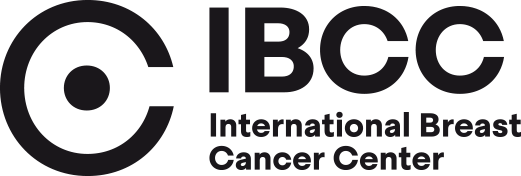When a patient hears about clinical trials, many doubts, questions and thoughts arise. One of the most common perceptions is feeling like a ‘guinea pig’ that is going to be experimented on; however, this belief is far from reality.
On the occasion of International Clinical Trials Day, celebrated on May 20, we at the International Breast Cancer Center do not want to miss the opportunity to explain to all patients with breast cancer, or other diseases, what these clinical trials consist of and what phases they comprise, in order to clear up any doubts they may have.
The first thing we must say is that the treatment of any disease, whether oncological or non-oncological, has advanced thanks to clinical trials and, today, all patients are benefitting from the results of clinical studies that have been carried out previously.
In the field of oncology, no new oncological treatment is approved for introduction into clinical practice unless it has undergone a strict and extensive clinical research program. Furthermore, each treatment must subsequently be approved by the drug regulatory agencies of the United States (FDA) and Europe (EMA).
Clinical trials have several phases, as explained below:
- Phase I clinical trial. This is the first phase of clinical research. In this phase, a treatment, or a combination of treatments, is usually being investigated for the first time in humans. This is the only phase of research in which the patient may feel like a ‘guinea pig’, but despite this, these clinical trials usually select patients whose tumours are more likely to respond to the treatment being evaluated in the clinical trial. This type of study involves staggered groups of patients, usually with different types of tumours, receiving progressively increasing doses of the treatment.
The aim of this type of study is to evaluate the toxicities of the treatment, to establish its recommended dose and to gain a preliminary understanding of its antitumour efficacy. For this reason, patients included in phase I clinical trials are closely monitored to ensure their safety and well-being at all times.
- Phase II clinical trial. In this phase, a treatment, of which we already know the recommended dose and any side effects, is evaluated by testing it on a certain type of tumour. These are usually studies with a limited number of patients, in which the possibility of achieving a benefit from the treatment being evaluated is greater. Based on the results, it is decided whether to proceed to phase III of the clinical investigation.
- Phase III clinical trial. This is the final phase of clinical development; this phase compares a new treatment, which has previously proven effective in the group of patients in which it is to be evaluated, with the best treatment currently available for this medical indication. These are usually studies with a large number of patients, who cannot choose the treatment they will receive; it may even be that neither the investigator nor the patient is aware of the treatment being given (this is known as double-blind). If this study shows that the new treatment is better than the conventional one, procedures are initiated with the FDA and the EMA for its use in clinical practice.
Aside from these clinical trials, there are two special ones: phase 0 and phase IV.
- Phase 0 clinical studies are carried out in newly diagnosed patients who receive short-term treatment during the waiting period before surgery. They are trials whose benefit/detriment to the patient is minimal, but which give us valuable information about changes in the tumour and how these treatments are working.
- Phase IV clinical studies look at drugs which have already been approved by the FDA and EMA and look for any side effects that have not been seen in previous phases. Nevertheless, they are clinical studies that can answer important questions.
Finally, we want to stress that, in any type of clinical trial, it is necessary to sign an informed consent form, after clarifying any concerns and questions with the investigator, that participation in the study is voluntary and that the patient can leave at any time without having to provide an explanation and without this decision affecting their future medical care.
As always, we advise our patients that, when participating in a clinical trial, they should do so keeping in mind what a good opportunity it is. If there are doubts about participating in a clinical trial, it is best for the patient not to participate until they are completely convinced that they want to do so.
At the International Breast Cancer Center (IBCC) there is a Clinical Research Unit made up of a highly qualified team of nurses, study coordinators, doctors and pharmacists with extensive experience in cancer research, which is currently conducting multiple clinical trials in different indications of breast cancer patients. If you have any questions or want to participate in a clinical trial, please contact us!
